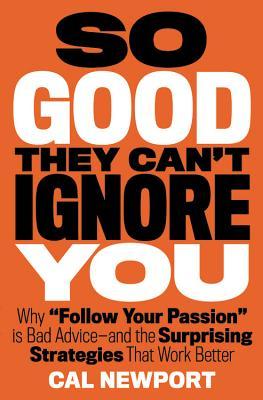
“Follow your passion” is dangerous advice. The book starts with this sentence and the whole book tries to explain why.
Cal Newport defines the Passion Hypothesis: “The key to occupational happiness is to first figure out what you’re passionate about and then find a job that matches this passion.” Many self-help books are based on this common belief. But as the author underlines: “The more you seek examples of the passion hypothesis, the more you recognize its rarity.” There should be another way.
Using the stories of successful people, the author concludes that inborn passion is rare if not nonexistent. It takes time for passion to growth, and is a side effect of mastery. You need to develop rare and valuable skills first in order to develop a work you love. You need to build what the author call your career capital, and make sure to avoid common pitfalls detailed in this book. You need to get so good employers can’t ignore you.
It’s a book I will recommend a lot, even if I found it sometimes poorly organized, or at least uncommonly organized. It’s like following the author during his quest. But it’s anecdotal. I enjoy reading the book, key ideas are clearly communicated, and more importantly, the book makes me reflect (a lot). The biggest downside of the book is the argumentation. Cal Newport uses very few stories, and not necessarily concerning famous people; not the best way to support his arguments.
Brilliant, but far from perfect.
